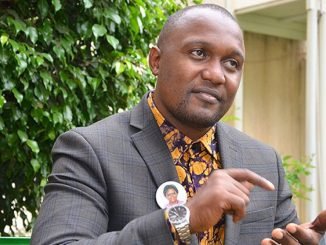
Kampala, Uganda | By Michael Wandati | Members of Parliament (MPs) are pushing for the swift reintroduction of the Minimum Wage Bill, 2015, aiming to address crucial aspects of labour regulation in Uganda.
Initially passed by Parliament in February 2018, the bill was designed to establish a framework for determining minimum wages across various sectors of the economy.
Among its provisions were the creation of minimum wage boards by the minister, mechanisms for sector-specific wage determination, delineation of the boards’ duties, powers, and functions, as well as procedures for setting the minimum wage.
Proposed by Workers MP Arinatwe Rwakajara, the bill aimed to rectify deficiencies in the existing Minimum Wage Advisory Board Act. It advocated for a system where both employees and employers would play a role in determining minimum wages, tailored to the specific needs of each sector.

However, President Museveni declined to assent to the bill, as communicated in a letter dated August 21, 2019, addressed to then-Speaker of Parliament, Rebecca Kadaga. The decision to reject the bill came following counsel from the then-Attorney General, William Byaruhanga.
“We need to bring up the issue of the minimum wage because you will find that most employees are being paid as little as Shs 100,000 a month. That is so little that somebody cannot even survive. That means that he earns less than a dollar per day,” Bugahya County MP Pius Wakabi said.
“We need the minimum wage for employees. The minimum somebody should earn is Shs 500,000. We have good laws, but the challenges are there. We pass laws, but they are not implemented,” he added.
Sarah Opendi, standing in for the state minister for Labour, highlighted ongoing concerns regarding labour exploitation, particularly within Uganda’s private sector. She made these remarks while addressing participants at a specialized training session for the Parliamentary Forum on Labor, Decent Employment, and Productivity held in Entebbe.
Also Read: UHRC calls for law on minimum wage to reduce labour export
Opendi emphasized that despite efforts to improve labor conditions, the issue of worker exploitation persists, underscoring the need for continued attention and action in this regard.
“There were efforts to have the minimum wage dealt with, but these efforts have not yielded any fruit. I hope that very soon we shall have this bill presented, of course as a private member’s bill, so that we can deal with the issue of the minimum wage to do away with the exploitation of Ugandans,” she said.
She highlighted that implementing a minimum wage in Uganda would enable the introduction of compulsory savings for all employed Ugandans.
Additionally, during the same session, lawmakers expressed concerns about the absence of oversight and the persistent deployment of workers in factories and other job sites without adequate safety equipment.
Opendi remarked that government inspections of workplaces often occur only in response to strikes or severe accidents resulting in employee injuries.
Berivan Erbil Pamuk, a specialist in decent work and social protection from Enabel Belgian Development Agency, emphasized that the objective of decent work protection is to prevent and shield individuals from vulnerability, social marginalization, and poverty throughout their lives.
“Social protection includes non-contributory schemes, contributory schemes and labour market policies from the state because it has the capacity to influence labour market integration for job seekers,” she said.



